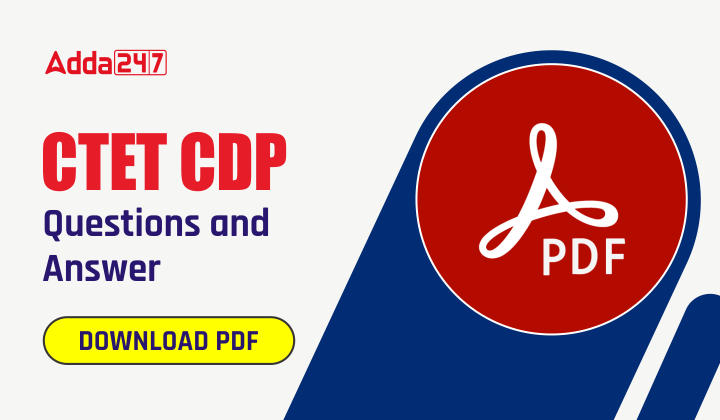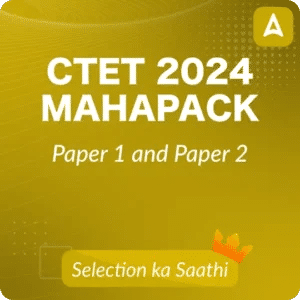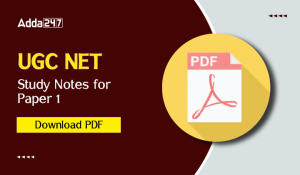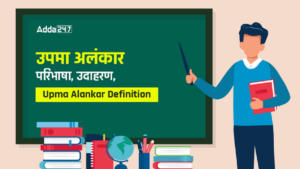Table of Contents
The Central Board of Secondary Education (CBSE) has slated the CTET 2024 Exam for 14th December 2024, with all pertinent information available on its official website. The Child Pedagogy Section, constituting 30 marks in both Paper 1 and Paper 2, is a focal point of the examination, covering topics such as child pedagogy, learning theories, and teaching methodologies. Understanding the significance of this section, we aim to support CTET candidates by providing a curated file of CTET CDP Question and Answers, tailored to enhance their preparation.
CTET CDP Section: Overview
The CTET Exam 2024 is being conducted by CBSE in offline mode. Candidates seeking eligibility to become teachers in government schools in India must appear for CTET Exam 2024. For more information on the CTET Child Development and Pedagogy Section, refer to the following table.
| Child Development and Pedagogy Section | ||
| Exam Name | CTET (Central Teacher Eligibility Test) | |
| Conducting Body | CBSE | |
| Category | CTET CDP Question | |
| CTET Exam Mode | Offline | |
| CTET 2024 Exam Date | 14 December 2024 | |
| Paper | Comes in both papers | |
| Total Questions | 30 questions (in each paper) | |
| Total Marks | 30 marks (on each paper) | |
| Negative Marking | No | |
| Question Pattern | Objective type | |
| Language | Bilingual | |
| Difficulty level for Paper 1 | Upto 8th Class | |
| Difficulty level for Paper 2 | Upto 10th Class | |
| Examination pattern | based on the primary level for Paper I and the upper primary level for Paper II. | |
Download CTET CDP Question and Answers PDF
The direct link to download the CTET Child Development and Pedagogy Question and Answer PDF has been provided below. Candidate must download the detailed pdf of 30 CTET CDP questions with answers containing Theories, Reasoning and Pedagogy questions.
Download CTET CDP Questions and Answers PDF
CTET CDP Questions
Q1. In comparison to boys vocabulary of girls in all stages and age is –
(a) More
(b) Less
(c) Equal
(d) Detective
Q2. Which one of the following is the best method to assess actual learner achievement on a topic taught?
(a) ask the learners attempt a test on the topic next day
(b) discuss the topic again the next day in class
(c) ask the learners to select answers from ready-made lists in questions
(d) ask the learners to perform a task using the matter covered in the topic
Q3. Which traditional learning theorist believed that the use of hypothetical constructs does not contribute to our understanding of behavior?
(a) Hull
(b) Skinner
(c) Tolman
(d) Rotter
Q4. If a student is mischievous and disturbing in the class with words and actions which of the following methods would be correct in your opinion to deal him?
(a) insult him in the class by pointing out his mistakes
(b) shout at him and warn him to correct himself
(c) call him to your room and make to him to understand his problems
(d) punish him by expelling him from the class to teach a lesson to others
Q5. The Father of Experimental Psychology is
(a) Wilhelm Wundt
(b) Sigmund Freud
(c) CG Jung
(d) William James
Q6. Which of the following forms of mental retardation is caused by the presence of an extra chromosome?
(a) Down syndrome
(b) Cretinism
(c) PKU
(d) Cultural-familial retardation
Q7. Which of the following is not an element of intelligence as suggested by Binnet?
(a) Direction
(b) Comprehension
(c) Adaptation
(d) Criticism
Q8. At a particular age, every normal child starts crawling, walking or talking. This is an example of which of the following?
(a) Learning
(b) Maturation
(c) Experience
(d) Ontogenetic functions
Q9. Which of the following begins with conception and ends with childbirth or abortions
(a) Motherhood
(b) Adulthood
(c) Pregnancy
(d) Lactation
Q10. Internal organs began to take shape and external physical characteristics assumed definite forms in
(a) Germinal period
(b) Embryonic period
(c) Fetal period
(d) None of the given options
Q11. According to Mussen, Conger and Kagan which of the following is not an obstacle to creativity in problem solving?
(a) Forgetting the elements of the problem
(b) Sufficient knowledge
(c) Fear of failure
(d) Fixed prior beliefs
Q12. Refusal of child to sleep alone is a symptom of which type of emotional disorder?
(a) Specific phobia
(b) Separation anxiety
(c) Conversion disorder
(d) Generalized anxiety disorder
Q13. Who out of the following has said, “Behaviour that does not conform to the cultural norms or laws of a given society at a particular time and is oftentimes negatively sanctione
(a) Omogho Esiri
(b) Max Weber
(c) George Herbert Mead
(d) August Comte
Q14. A teacher observes a student humming a popular song which has high prurient overtones. In which of the following cases can the cause of this delinquency be attributed to pe
- The child has heard his/her parents sing the song.
- The child has heard the song on YouTube.
Choose the correct code.
(a) Only 1
(b) Only 2
(c) Both 1 and 2
(d) Neither 1 nor 2
Q15.Which of the following sections of the Juvenile Justice (Care and Protection of Children) Act, 2015 provides for special provisions that have been made to tackle child offenders
(a) Section 10
(b) Section 8
(c) Section 13
(d) Section 15
CTET CDP Solutions with Explanations
S1. Ans.(a)
Sol. Research has shown that girls generally develop language skills earlier than boys and have a larger vocabulary in early childhood. This trend can be observed across various stages of childhood development, where girls tend to outperform boys in verbal abilities such as vocabulary, reading, and writing. These differences are influenced by biological, environmental, and social factors.
S2. Ans.(d)
Sol. Asking learners to perform a task based on the material covered in the topic is considered the best way to assess their actual understanding and achievement. This method allows learners to apply knowledge practically, ensuring that they have not only memorized information but also understood it thoroughly. Performance-based assessment can help gauge real-life application skills.
S3. Ans.(b)
Sol. B.F. Skinner, a behaviorist, rejected the idea of using hypothetical constructs to explain behavior. He emphasized observable behaviors and environmental factors, believing that behavior could be fully explained without resorting to internal mental states or constructs like consciousness or motivation.
S4. Ans.(c)
Sol. Calling the student aside and helping him understand the consequences of his actions in a calm and private setting is the most effective way to handle the situation. This approach ensures that the student feels respected while correcting his behavior, fostering a supportive learning environment rather than one of fear or punishment.
S5. Ans.(a)
Sol. Wilhelm Wundt is considered the father of experimental psychology. He established the first psychology laboratory at the University of Leipzig in 1879, where he conducted various experiments to study consciousness using introspection. Wundt’s work laid the foundation for psychology as a separate and empirical field of study.
S6. Ans.(a)
Sol. Down syndrome is caused by the presence of an extra copy of chromosome 21, leading to developmental and intellectual delays. This chromosomal abnormality affects physical growth, facial features, and cognitive function, and it is one of the most common genetic causes of intellectual disability.
S7. Ans.(b)
Sol. According to Alfred Binet, comprehension is not explicitly listed as an element of intelligence. Binet’s theory of intelligence focuses primarily on aspects such as direction (the ability to know what needs to be done), adaptation (the capacity to adjust thinking or strategies to solve problems), and criticism (the ability to evaluate one’s own thinking). Binet’s emphasis was on practical problem-solving and self-regulation rather than purely on comprehension.
S8. Ans.(b)
Sol. Maturation refers to the biological growth processes that lead to changes in behavior, relatively uninfluenced by experience. Crawling, walking, and talking are developmental milestones that occur naturally as part of the maturation process in children.
S9. Ans.(c)
Sol. Pregnancy is the period that begins with conception and ends with childbirth or abortion. It involves the development of a fetus inside the mother’s womb and typically lasts about 40 weeks in humans.
S10. Ans.(b)
Sol. The embryonic period is when internal organs begin to take shape, and external physical characteristics start to develop. This period lasts from about the third to the eighth week of pregnancy and is a critical time for the formation of essential structures in the body.
S11. Ans.(b)
Sol. Sufficient knowledge is not considered an obstacle to creativity in problem-solving. In fact, having sufficient knowledge aids in creativity as it provides the individual with a broad base to draw upon when generating ideas. The obstacles listed, such as forgetting, fear of failure, and fixed beliefs, limit creative thinking by either restricting access to relevant information or reducing the willingness to explore new solutions.
S12. Ans.(b)
Sol. Separation anxiety is characterized by excessive fear or anxiety about being apart from home or loved ones. A common symptom is a refusal to sleep alone, as the child may feel extreme distress at being separated from their parents or caregivers.
S13. Ans.(a)
Sol. Omogho Esiri is known for his work on social behavior, particularly focusing on actions that deviate from societal norms and the negative consequences they can incur. His studies emphasize how societies react to non-conforming behaviors through sanctions or punishments.
S14. Ans.(b)
Sol. Peer pressure refers to the influence exerted by peers or social groups to adopt certain behaviors, attitudes, or actions. In this scenario, the options provided (hearing the song from parents or on YouTube) do not directly relate to peer pressure. Hearing a song from parents falls under familial influence, and hearing it on YouTube is exposure to media. Neither involves the child’s peers encouraging or influencing the behavior, hence both statements are unrelated to peer pressure.
S15. Ans.(d)
Sol. Section 15 of the Juvenile Justice (Care and Protection of Children) Act, 2015 deals with the provisions related to children in conflict with the law, including those involved in heinous offenses. This section provides for the trial and rehabilitation of juvenile offenders, considering the age and severity of the crime.




 UGC NET Study Notes for Paper 1, Downloa...
UGC NET Study Notes for Paper 1, Downloa...
 समुद्र का पर्य�...
समुद्र का पर्य�...
 उपमा अलंकार: पर�...
उपमा अलंकार: पर�...














